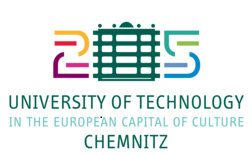Physical Education and Sports Preservice Teachers' Experiences in Professional Knowledge Courses for Teacher Training
DOI:
https://doi.org/10.71514/jssal/2023.118Keywords:
Physical education and sports teacher, professional knowledge courses, pre-service teachers, characteristics of the lecturers, reluctanceAbstract
Professional knowledge courses for teachers are as important as field courses because while field courses emphasise what should be taught, professional knowledge courses focus on how it should be taught, including how to be a good teacher. It is expected that professional knowledge courses in school have a great importance and impact on pre-service teachers to use the skills they have learned in the faculty when they start their professional life, as well as to adopt the behaviours and roles related to their professional knowledge. In this context, the purpose of this study is to discover the experiences of pre-service teachers of Physical Education and Sport in relation to professional knowledge courses. This research was designed in a phenomenological pattern by adopting the qualitative method. Based on the professional knowledge and course experiences of each pre-service teacher, the similarities and differences between the cases were examined. In conclusion, 'Educational Psychology' and 'Teaching Principles and Methods' were found to be the most useful courses. They benefited most from 'School Experience and Professional Practice' as a teacher training course. However, they didn't benefit enough from the 'Measurement and Evaluation' and 'Classroom Management' courses. Lecturers need to get to know pre-service teachers before and during the course and make them feel that they are experts by adapting the course to the field using different materials, educational technologies, real-life stories, and different methods
Downloads
References
Akgün, M. (2016). How to make the ideal instructor in higher education? Uludağ University Journal of Faculty of Science and Literature Department of Philosophy, 26 (Spring), 197-204. https://doi.org/10.20981/kuufefd.97116. https://dergipark.org.tr/tr/download/article-file/271715#:~:text=Bir%20%C3%B6%C4%9Fretim%20eleman%C4%B1%
C%20s%C4%B1n%C4%B1ftaki%20her,ba%C5%9Far%C4%B1lar%C4%
B1n%C4%B1%20artt%C4%B1racak%20%C5%9Fekilde%20hareket%20etmelidir
Alanazi, M. H. (2019). A study of the pre-service trainee teachers problems in designing lesson plans. Arab World English Journal (AWEJ), 10(1): 166-182. https://doi.org/10.24093/awej/vol10no1.15
Baltacı, A. (2018) A conceptual review of sampling methods and sample size problems in qualitative research. Journal of Bitlis Eren University, 7(1), 231–274. https://dergipark.org.tr/en/pub/bitlissos/issue/38061/399955
Berrett, D. (2015). The unwritten rules of college. The chronicle of higher education. https://www.chronicle.com/article/The-Unwritten-Rules-of/233245/?cid=at&utm_medium=en&utm_ source=at
Beşoluk, Ş., & Horzum, M. B. (2011). Prospective teachers’ views regarding pedagogical courses, field knowledge courses and willingness to serve as a teacher. Ankara University Journal of Faculty of Educational Sciences, 44(1), 17-49. https://doi.org/10.1501/Egifak_0000001214. https://dergipark.org.tr/tr/pub/auebfd/issue/38386/445153?publisher=ankara
Birgin, O., & Gürbüz, R. (2008). Examining the level of knowledge of the teacher candidates about assessment and evaluation. Selcuk University Journal of Social Sciences Institute, 20, 163- 180. https://dergipark.org.tr/tr/pub/susbed/issue/61796/924236
Bocharova, J. Y. (2018). Expected outcomes of teacher internship, or a pedagogical university graduate trapped in standards. Journal of Siberian Federal University, Humanities & Social Sciences, 2(11), 174-184. https://doi.org/10.17516/1997-1370-0178. https://elib.sfu-kras.ru/handle/2311/68381
Carlson, T. B. (1995). We hate gym: Student alienation from physical education. Journal of Teaching in Physical Education, 14(4), 467-477. https://doi.org/10.1123/jtpe.14.4.467
Collier, P. J., & Morgan, D. L. (2008). Is that paper really due today?: Differences in first- generation and traditional college students’ understandings of faculty expectations. Higher Education, 55, 425–446. https://dx.doi.org/10.1007/s10734-007-9065-5
Creswell, J. (2013). Research design: qualitative, quantitative, and mixed methods approaches. Sage Publishing.
D'elia, F., Mazzeo, F., & Raiola, G. (2018) The core curriculum in the university training of the teacher of physical education in Italy. Journal of Human Sport and Exercise, 13(2proc), 413-420. https://doi.org/10.14198/jhse.2018.13.Proc2.25
Demchenko, I., Maksymchuk, B., Bilan, V., Maksymchuk, I., & Kalynovska, I. (2021). Training future physical education teachers for professional activities under the conditions of inclusive education. Broad Research in Artificial Intelligence and Neuroscience (BRAIN), 12(3), 191-213. https://doi.org/10.18662/brain/12.3/227
Ekici, G. (2008). The evaluation of teacher candidates' attitudes towards teaching professional courses and learning styles. Journal of Yüzüncü Yıl University Faculty of Education, V(I), 111-132. https://dergipark.org.tr/tr/pub/yyuefd/issue/13713/166028
Ennis, C. D. (2017). Educating students for a lifetime of physical activity: Enhancing mindfulness, motivation, and meaning. Research Quarterly for Exercise and Sport Lecture, 88(3), 241-250. https://doi.org/10.1080/02701367.2017.1342495
Feldman, S. (2000). Building a profession: Report. AFT. www.aft.org/higher_ed/reports/k16report.html
Fer, S. (2004). Qualitative evaluation of emotional intelligence in-service program for secondary school teachers. The Qualitative Report, 9(4), 562-588. https://doi.org/10.46743/2160-3715/2004.1904
Fernández-Rivas, M., & Espada-Mateos, M. (2019) The knowledge, continuing education and use of teaching styles in Physical Education teachers. Journal of Human Sport and Exercise, 14(1), 99-111. https://doi.org/10.14198/jhse.2019.141.08
Frymier, A. B., Houser, M. L. (1999). The revised learning indicators scale. Communication Studies, 50(1), 1-12. https://doi.org/10.1080/10510979909388466
Hergüner, G., Arslan, S., & Dündar, H. (2002). Perception levels of school students’ school experience course in physical education and sport teaching department. Journal of Pamukkale University Education Faculty, 1(11): 44-58. https://dergipark.org.tr/tr/pub/pauefd/issue/11132/133140
Higher Education Council (2007a). Education faculty teacher training degree programs. www.yok.gov.tr/documents/10279/30217/E%C4%9E%C4%B0T%C4%B0M
+FAK%C3%9CLTES%C4%B0%20%C3%96%C4%9ERETMEN+YET%C4
%B0%C5%9ET%C4%B0RME+L%C4%B0SANS+PROGRAMLARI.pdf/054
dfc9ea753-42e6-a8ad-674180d6e382
Iqbal, H., Siddiqie, S. A. & Mazid, A. (2021) Rethinking theories of lesson plan for effective teaching and learning. Social Sciences & Humanities Open, 4(1): 1-7. https://doi.org/10.1016/j.ssaho.2021.100172
Jovanova-Mitkovska, S. (2010). The need of continuous professional teacher development. Procedia-Social and Behavioral Sciences, 2(2), 2921-2926. https://doi.org/10.1016/j.sbspro.2010.03.441
Jegede, O., & Taplin, M. (2000). Trainee teachers’ perception of their knowledge about expert teaching. Educational Research, 42, 287-308. https://doi.org/10.1080/001318800440614. https://www.tandfonline.com/doi/abs/10.1080/001318800440614.
Johnson, D. T., & Chandler, F. J. (2009). Pre-service teachers fieldtrip to the battleship: Teaching and learning Mathematics through an informal learning experiences. Issues in the Undergraduate Mathematics Preparation of School Teachers, 2, 1-9. https://mathedseminar.pbworks.com/w/file/fetch/48316021/Fieldtrip
%20to%20the%20Battleship.pdf
Kılıç, A. (2007). The level of learning of the courses in the classroom teacher training program. Electronic Journal of Social Sciences, 6(19), 136- 145.
Kirk, D., & Gorely, T. (2000). Challenging thinking about the relationship between school physical education and sport performance. European Physical Education Review, 6(2), 119-134.
Köse, E. Ö. (2010). The opinions of prospective teachers about classroom management. Journal of Cukurova University Education Faculty, 3(39), 20-27.
Kulkarni, S., Afshan, N., & Motwani, J. (2018) The impact of faculty member’s communication behaviours on student satisfaction: the role of cognitive and affective learning and student’s motivation. International Journal of Productivity and Quality Management, 25(4), 444-458.
McDavid, L., Cox, A. E., & Amorose, A. J. (2012.) The relative roles of physical education teachers and parents in adolescents’ leisure-time physical activity motivation and behavior. Psychology of Sport and Exercise, 13(2), 99-107.
Miles, M. B., & Huberman, A. M. (1994). An Expanded Source Book: Qualitative Data Analysis. Sage Publishing.
Miller, A. C., & Mills, B. (2019). ‘If they don’t care, I don’t care’: Millennial and generation Z students and the impact of faculty caring. Journal of the Scholarship of Teaching and Learning, 19(4), 78-89. https://doi.org/10.14434/josotl.v19i4.24167
Mirzeoğlu, A. D. Soydaş Yaralı, S. Çoknaz, D., & Özmen, S. (2019). Lessons and professions in the eyes of physical education and sports teachers (Sakarya example). Gazi Journal of Physical Education and Sport Sciences, 24(2), 111-131. https://dergipark.org.tr/tr/pub/gbesbd/issue/44318/525245
Morreale, S., Staley, C., Stavrositu, C., & Krakowiak, M. (2015). First-year college students' attitudes toward communication technologies and their perceptions of communication competence in the 21st century. Communication Education, 64, 107–131. https://doi.org/10.1080/03634523.2014.978799. https://www.tandfonline.com/doi/abs/10.1080/03634523.2014.978799
Nartgün, Ş. S. (2008). The principles of appointing teachers to educational institutions affiliated to the Ministry of National Education through the eyes of prospective teachers. Abant İzzet Baysal University Journal of Education Faculty, 8(2), 47-58. https://dergipark.org.tr/tr/pub/aibuefd/issue/1495/18083.
Noori, A. Q., Said, H., Nor, F. M., & Ghani, F. A. (2020). The relationship between university lecturers' behaviour and students' motivation. Universal Journal of Educational Research, 8(11C), 15 – 22. https://doi.org/10.13189/ujer.2020.082303.
Nurtanto, M., Kholifah, N., Masek, A., Sudira, P., & Samsudin, A. (2021). Crucial problems in arranged the lesson plan of professional teacher. International Journal of Evaluation and Research in Education, 10(1), 345-354. https://doi.org/10.11591/ijere.v10i1.20604
Ören, F. Ş., Sevinç, Ö. S., & Erdoğmuş, E. (2009). To evaluate the attitudes and opinions of pre-service teachers about school experience courses. Educational Administration in Theory and Practice, 15(58), 217-246. https://dergipark.org.tr/tr/pub/kuey/issue/10339/126682
Özdemir, M. (2010). Qualitative data analysis: A study on methodology problem in social sciences. Eskisehir Osmangazi University Journal of Social Sciences, 11(1), 323-343. https://dergipark.org.tr/en/pub/ogusbd/issue/10997/131612
Peng, J. E. (2019). The roles of multimodal pedagogic effects and classroom environment in willingness to communicate in English. System, 82, 161-173.
Postareff, L., Lindblom-Yiänne, S., & Nevgi, A. (2008). A follow-up study of the effect of pedagogical training on teaching in higher education. Higher Education, 56(1), 29-43. https://doi.org/10.1007/s10734-007-9087-z
Rauf, P. A., Ali, S. K. S., & Noor, N. A. M. (2017). The relationship between models of teachers professional development and teachers’ instructional practices in the classrooms in the primary schools in the state of Selangor, Malaysia. International Journal of Education, Psychology and Counseling, 2(5), 120-132.
Rice, E. A., Hutchinson, J. L., & Lee, M. A. (1969). Brief history of physical education. 6th ed. Boston: McGraw-Hill.
Rogayan J. D. V., & Reusia, D. H. R. (2021). Teaching internship from the metaphorical lens of Filipino prospective teachers. International Journal of Evaluation and Research in Education, 10(3), 798-806. https://doi.org/10.11591/ijere.v10i3.21242
Roth, W. M., & Tobin, K. (2001). Learning to teach science as practice. Teaching and Teacher Education, 17, 741-762. https://doi.org/10.1016/S0742-051X(01)00027-0
Saxe, G., Gearhart, M., & Nasir, N. S. (2001). Enhancing students’ understanding of mathematics: A study of three contrasting approaches to professional support. Journal of Mathematics Teacher Education, 4, 55–79.
Sher, A. (2009). Assessing the relationship of student-instructor and student-student interaction to student learning and satisfaction in web-based online learning environment. Journal of Interactive Online Learning, 8(2), 102-120. https://www.ncolr.org/jiol/issues/pdf/8.2.1.pdf
Sum, K. W. R., Wallhead, T., Ha, S. C. A. , & Sit, H. P. C .(2018). Effects of physical education continuing professional development on teachers’ physical literacy and self-efficacy and students’ learning outcomes. International Journal of Educational Research, 88, 1-8. https://doi.org/10.1016/j.ijer.2018.01.001
Sunay, H. (1998). Qualities and education of sport managers. Journal of Physical Education and Sport Sciences, 1, 59- 68.
Şahin-Taşkın, Ç., & Hacıömeroğlu, G. (2010). The importance of professional courses in the professional development of teacher candidates. Pamukkale University Journal of Education Faculty, 28 (July/II), 165-174. https://dergipark.org.tr/tr/download/article-file/114622
Şen, H. Ş., & Erişen, Y. (2002). Effective teaching skills of instructors in teacher training institutions. Gazi University Journal of Gazi Education Faculty, 22(1), 99-116. https://dergipark.org.tr/en/pub/gefad/issue/6766/91036
Şirin, E. F., & Cesur, K. (2008). The relationship between the field knowledge of physical education pre-service teachers and the achievement of teaching profession. Sakarya University Physical Training Sports Science Magazine, 10(1), 1-10.
Tavsancil, E., & Aslan, A. (2001). Content analysis and application examples. Epsilon Publishing.
Tinto, V. (2004). Student retention and graduation: Facing the truth, living with the consequences. Occasional paper 1. Pell Institute.
Tomporowski, P. D. Lambourne, K., & Okumura, M. S. (2011). Physical activity interventions and children's mental function: An introduction and overview. Preventive Medicine, 52, S3-S9. https://doi.org/10.1016/j.ypmed.2011.01.028
Volante, L., & Fazio, X. (2007). Exploring teacher candidates’ assessment literacy: Implications for teacher education reform and professional development. Canadian Journal of Education, 30(3), 749-770. https://doi.org/10.2307/20466661
Warman, W., Suryaningsi, S., Mulawarman, W. G. (2021). Overcoming obstacles in implementing 2013 curriculum policy. Cypriot Journal of Educational Science, 16(3), 967-980. https://doi.org/10.18844/cjes.v16i3.5770
Yanpar-Yelken, T., Çelikkaleli, Ö., & Çapri, B. (2007) The views of teacher candidates on determining the quality standards of Education Faculty. Journal of Mersin University Education Faculty, 3(2), 191-215. https://dergipark.org.tr/tr/download/article-file/160972
Yli-Piipari, S. (2011). The development of students’ physical education motivation and physical activity. A 3-5 year longitudinal study across grades 6 to 9. [Unpublished doctoral dissertation]. University of Jyväskylä.
Zepeda, S. J. (2017). Instructional supervision: Applying tools and concepts. Routledge, Taylor & Francis Group. https://www.taylorfrancis.com/books/mono/10.4324/9781315625874/
instructional-supervision-sally-zepeda
Downloads
Published
How to Cite
Issue
Section
License
Copyright (c) 2023 Seval Fer, Hanife Gülhan Karsak

This work is licensed under a Creative Commons Attribution-NonCommercial 4.0 International License.
The work is made available under the terms of the Public Offer and the Creative Commons Attribution 4.0 International License (CC BY 4.0). This license allows anyone to reproduce, distribute, and adapt the material in any medium or format, including for commercial purposes, provided that proper credit is given to the creator(s) and the original source.












